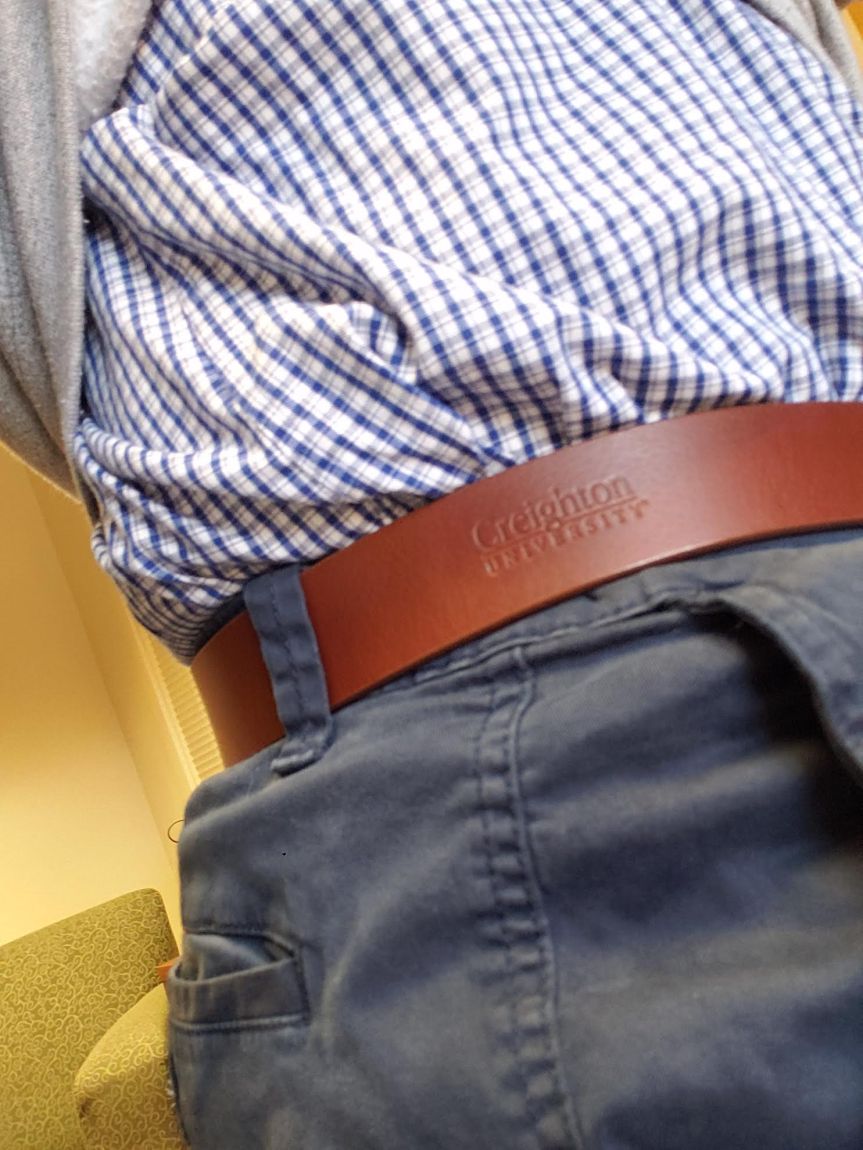Since the Bronze Age, men have been rocking belts. For most of its history, belts are a practical accessory, meant to hold weapons. Today, we’ve moved passed that and now wear belts because it makes us look fashionable and keeps our pants from falling. I guess that’s practical, right?
What does this have to do with economics? Well, belts are a result of the market process–so it has everything to do with economics.
However, this post is mainly inspired by one concept: the elasticity of demand. The elasticity of demand is the measure of how responsive consumers are to changes in price. If the price of table salt were to increase from $1.99 to $6.99, there would be very few consumers, on the margin, who do not buy the salt because of the price increase. This phenomenon describes a relatively inelastic good. If the price of a slice of pizza, however, increases from $1.99 to $6.99, many consumers will likely curb back on buying the pizza and will look for a better deal elsewhere.
After I showered at the gym and changed into my work attire, I realized I had forgotten a belt. What’s more, I had an important meeting scheduled at 9 am.
So, at 8:45 am, I need a belt. What are my options?
- Just keep my hands in my pockets for the entire day to make sure my pants don’t fall. Also, re tuck my shirt into my pants every minute.
- Drive 30 minutes round trip to my house to pick out a belt and push my meeting back 15 to 30 minutes or so.
- Drive 30 minutes round trip to a store that sells cheaper belts, like Walmart, ROSS, or The Salvation Army, and still push my meeting back 15 to 30 minutes.
- Head into my office, and on my way to the meeting, stop by the bookstore and buy a more expensive Creighton belt and put it on as I walk to the meeting on time.

I spent $35 on a Creighton belt when I have plenty of belts to choose from at my house! Am I crazy? Wait…don’t answer that.
Reflecting on my belt purchases, I came to the realization that I buy most of my belts this way. My demand for belts is relatively inelastic. The vast majority of my belt purchases come from an immediate, dire need. Very seldom do I shop for a belt. I have bought belts at hotels (super expensive), university bookstores (also expensive), and on the way to a wedding to which I’m already 15 minutes late.
Given my situation—my pants will fall, or I’ll look funny in formal attire without a belt—changes in the price of the belt won’t deter my purchasing of the belt, by that much, on the margin. Honestly, I probably would have still bought the belt at the bookstore this morning if it was priced at $70—100% more expensive!
This is my experience, but could it be applied to the market for belts as a whole? I can’t be the only guy who purchases his belts last minute. I would speculate that most men purchase their belts at the last minute.
Belts are a fantastic example of a type of good that has a relatively inelastic demand curve. Belts:
- Are not purchased regularly, kind of like table salt.
- Have always been and continue to be viewed as a necessity. Not only do they hold your pants up, but a belt signals professionalism.
- Are often purchased on a severe time crunch, or when there aren’t many other options.
- Even though they may get pretty expensive, they still don’t break the bank like say a plane ticket, car, or rental apartment.
Because they have these inelastic characteristics, retailers can price them with a pretty high markup. If you go on Amazon, however, belts are priced a little more reasonably. Online, you have time to shop and compare and will likely accept the 2-day “free shipping.” At the store, we need this belt right now.
If you think shopping online is convenient, well, you’re right. However, it isn’t as convenient as a brick and mortar store right next to your job or the conference you are attending. We pay for that convenience via higher prices.
After chatting this up with some economists, I was reminded that we could get around the retailer opportunism by merely buying the expensive belt and returning it when we’re done. Next time, “Hi, I’d like to return this item. It didn’t fit.”
Ah, I’m kidding. God, in all His Glory, might whip me with His belt if He finds out that I returned the belt.

